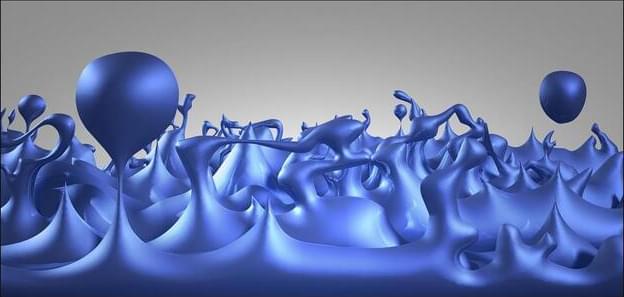The ancient Greek philosopher Aristotle wrote in his manuscript on Physics 2,373 years ago: “If everything that exists has a place, place too will have a place, and so on ad infinitum.” Is the notion of space being continuous ‘without limit’ justified?
Before elementary particles were discovered, water was thought to be a continuous fluid. This is a good approximation on large scales but not on molecular scales where the interactions among elementary particles matter.
Similarly, spacetime has been thought to be a continuum since ancient times. While this notion appears consistent with all experimental data on large spatial or temporal scales, it may not be valid on tiny scales where quantum effects of gravity matter. An analogy can be made with the illusion of a movie which appears continuous when the frame rate is high enough and the spatial pixels are small enough for our brain to process the experience as seamless. Since our brain is made of elementary particles, the temporal and spatial resolution by which it senses reality is coarser by many orders of magnitude than any fundamental scale by which spacetime is discretized.









Comments are closed.